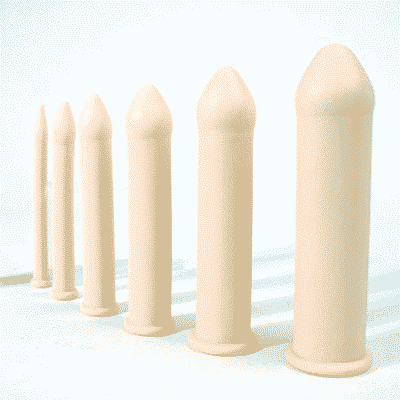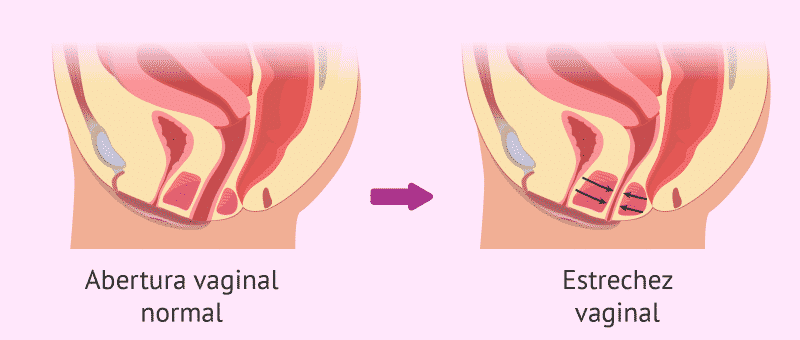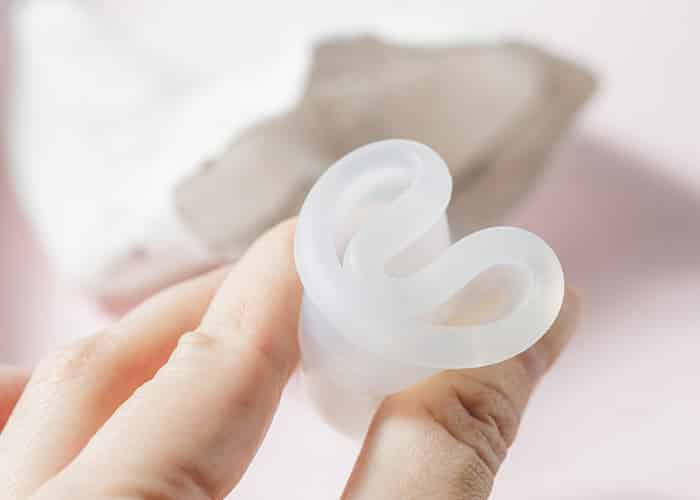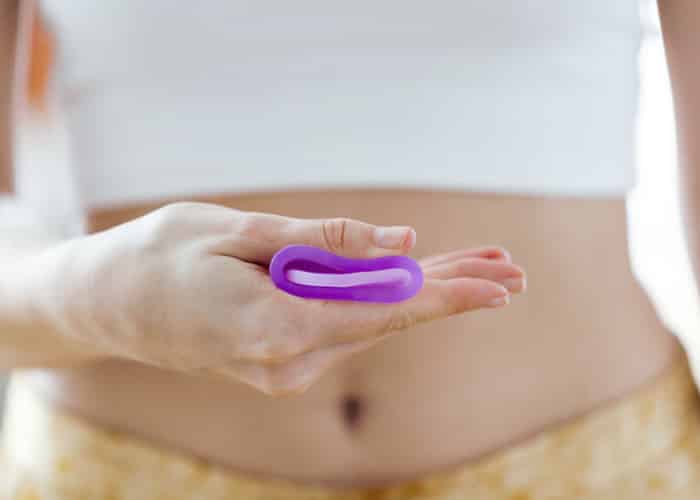Many women have heard of erectile dysfunction, which occurs in men when they cannot have an erection. Generally, the causes of impotence are usually psychological and have nothing to do with the man not feeling pleasure. As women, we also suffer from the inability to open ourselves up to penetration (even from a tampon) for psychological reasons, and this is what is known as vaginismus.
Although it is not a very well-known term, vaginismus is thedifficulty during sex with penetration due to the involuntary contraction of the pelvic floor muscles. This causes what is known as vestibulodynia, which is unexplained pain experienced in the first part of the vaginal canal before any of the stimuli described above.
Basically, it means that your vagina narrows more than it should when you insert any object into it such as a menstrual cup, equipment for gynecological studies, or even during sexual intercourse.
The first thing we want to clarify is that you’re not responsible or guilty for it happening, nor does it mean that you don’t feel pleasure when you’re with your partner. Vaginismus has other underlying causes and can be minor or more severe depending on each woman.
Before continuing, it’s important to note that this type of narrowing and vestibulodynia shouldn’t be confused with dyspareunia (pain during intercourse).
Why Does Vaginismus Occur?
Vaginismus can be identified and diagnosed from adolescence, when girls unsuccessfully attempt to put on a tampon, or at later ages when they try to have sex that is painful or very uncomfortable.
As stated earlier, it occurs when the vaginal walls do not allow passage into the vagina. Although these are physical responses from the body, in most cases it is based on psychological reasons. These may be:
- Anxiety before penetration is one of the most common causes, which narrows the vaginal canal because of fear experienced at the time of penetration, making the act more uncomfortable and difficult. The fear of suffering pain could cause the same thing to happen in the future.
- Another reason is the fear of pregnancy, sexually transmitted diseases, trauma from an event such as rape, poor body image, or even dislike or fear of a partner.
- Often a lack of information and education on sexual organs can lead to fear and aversion to such things. Visits to the gynecologist which ended up being uncomfortable or traumatic can also produce fear during coitus and thus, vaginismus.
Of course, there are alsophysical causes such as endometriosis and other pelvic inflammatory diseases, hemorrhoids, recurring candidiasis, etc.
How do I Know if I Have This Condition?
To identify if you suffer from vaginismus, it is necessary to rule out that the source of the discomfort is involuntary responses from the pelvic muscles and that it is not related to dyspareunia.
Dyspareunia is pain during sexual intercourse caused by certain conditions such as vaginal candidiasis, endometriosis, vaginal dryness, menopause, infectious agents, a condom latex allergy, etc.
That being said,the signs you may be experiencing vaginismus are:
- Inability or difficulty upon inserting more than two fingers into the vagina.
- Difficulty inserting a tampon or menstrual cup.
- Pain during intercourse from the feeling of having a very narrow vagina.
- Excessive discomfort when inserting devices during gynecological examinations.
Furthermore, if you are aware that you may be having symptoms of anxiety before penetration, or if you have had any trauma related to your genitals or sexual intercourse, you may have a case of vaginismus.
Treatments for Vaginismus: Can it be beaten?

Fortunately, the issues causing vaginismus can be treated most of the time. Depending on the type of vaginismus (primary when it occurs from the first time having sex or secondary if it occurs later), you can determine which treatment is most appropriate in your case.
If you know that these issues originate from the psyche, psychological therapy can help you overcome anxiety, fear, and trauma and, therefore, leave vaginismus behind. Going to both a physiotherapist and a sexologist can help you to reduce this condition.
There are vaginal dilators, which are devices that help to open the vagina gradually, and which may be recommended by competent specialists for treatment.
Nevertheless, you should always consult with your doctor if you know that it could be due to physical situations like recurrent candidiasis or other vaginal infections, sexually-transmitted diseases, endometriosis, or if you have given birth recently by C-section.
As a situation that can affect both you and your partner, it’s best to talk about it together and become informed and educated so that your partner can support you during your recovery. Sex is a fundamental part of being a healthy couple, so communication is vital for a healthy relationship.
Another question: Can I use a menstrual cup if I suffer from vaginismus?
The menstrual cup is a device that is very safe for both the body and the environment. However, your comfort comes first– so once you have improved with the treatment authorized by your doctor or physiotherapist, you can use it perfectly.
However, if even with treatment and therapy you still feel pain or find it very difficult inserting the menstrual cup, it’s best not to force it in.
At Sileu, we are here to advise you through five advisory mechanisms by which you can communicate with us. Do not hesitate to ask us to resolve any concerns.









